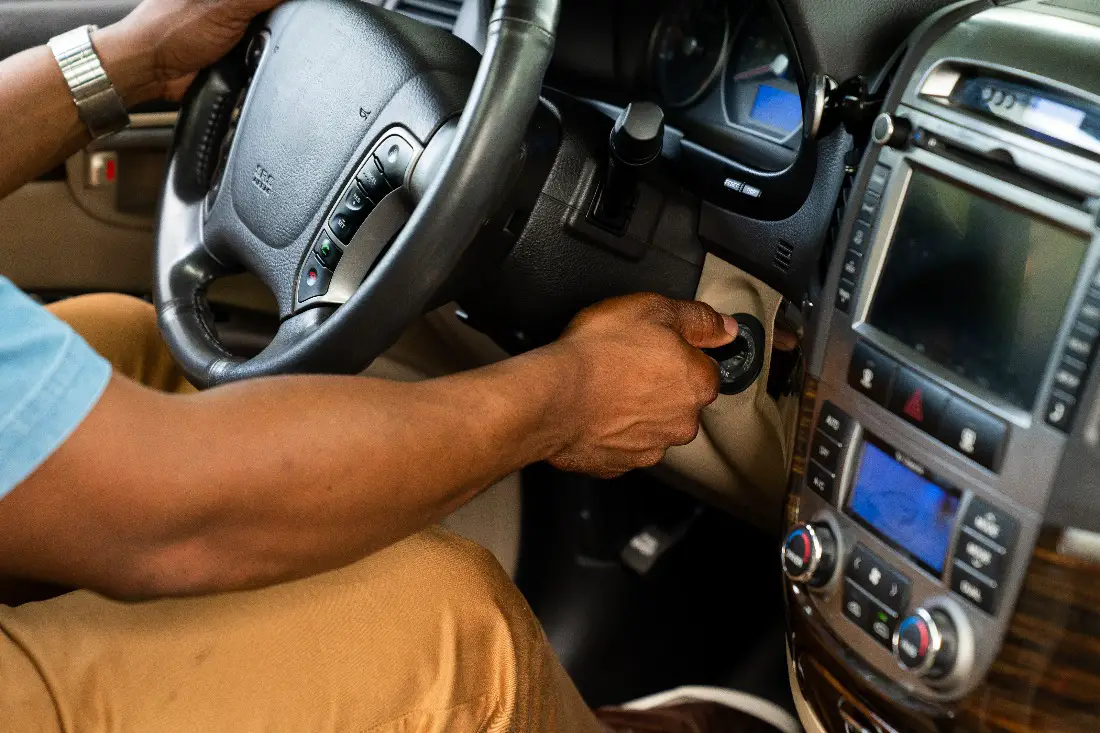What could be more frustrating than running late for work or an important appointment, only to find that your car key won’t turn in the ignition? It’s a moment of panic, and confusion. Then you wonder if it Is the car key? The ignition? Or something else entirely? While it might feel like your day is ruined, the good news is that this issue is often easier to fix than it seems.
Whether you’re dealing with a stuck steering wheel, a worn-out key, or a deeper mechanical problem, this guide will walk you through everything you need to know to troubleshoot and resolve the problem. By the time you’re done reading, you’ll not only understand why this happens but also feel confident tackling the issue yourself or knowing when to seek help. Let’s dive into the possible causes and solutions so you can get back on the road without unnecessary stress.
Common Reasons Your Key Won’t Turn to Start Your Car
Here are some common reasons why your car key won’t turn your car engine to start.
1. Ignition Lock Issues
The ignition lock mechanism is designed to work with your specific key. Over time, this system can wear out or become misaligned. Dirt, debris, or even wear on the key itself can make it difficult for the ignition to recognize the correct key pattern.
2. Steering Wheel Lock
Many vehicles have a built-in safety feature that locks the steering wheel when the car is turned off. If the wheel is stuck in a locked position, it can prevent the key from turning. This often happens when you turn the steering wheel after removing the key from the ignition.
3. Worn or Damaged Key
Keys aren’t indestructible. Years of use can cause the metal to wear down, affecting the precision of the cuts. A bent, chipped, or damaged key might not align properly with the ignition pins, making it impossible to turn.
4. Dead Car Battery
If your car’s battery is completely dead, it can sometimes prevent the key from turning in modern vehicles equipped with electronic ignition systems. While the physical act of turning the key isn’t battery-dependent, certain models may require minimal electrical power to unlock the ignition.
5. Dirt and Debris in the Ignition Cylinder
Ignition cylinders can accumulate dirt and grime over time. If there’s enough buildup, it can obstruct the key from fully inserting or turning.
What to Do If Your Key Won’t Turn to Start Your Car?
Here are steps to follow closely in other to fix the problem why your car key won’t turn to start your car.
1. Check the Car Steering Wheel
If the steering wheel is locked, try this quick fix:
- Gently wiggle the steering wheel left and right while turning the key in the ignition. Avoid using excessive force on the key or wheel, as this could cause damage. This often unlocks the steering mechanism and allows the key to turn.
- Inspect the Key: Take a close look at your key for signs of damage. If the key is bent, try straightening it using a flat surface and gentle pressure.
- For worn keys, consider using a spare if you have one. Spare keys are often less worn and may work better.
If neither key works, the issue might lie within the ignition itself.
2. Clean the Ignition Cylinder
Dirt and grime in the ignition cylinder can block the key from engaging fully.
- Use a can of compressed air to blow out any debris from the ignition slot.
- If you suspect the ignition is sticky, apply a small amount of graphite lubricant. Avoid using oil-based products, as these can attract more dirt over time.
3. Test the Car Battery
For cars with electronic ignition systems, a dead battery might be the cause.
- Check the battery by turning on the headlights or interior lights. If they don’t work, the battery might need a jump-start.
- Use jumper cables or a portable jump starter to power up the battery and test the ignition again.
4. Try a Spare Key
If you’ve been relying on one key for years, it might have become too worn to function properly. A spare key can bypass this issue.
- Use the spare to see if it fits and turns smoothly.
- If it works, consider replacing the old key to avoid future issues.
What to do When the Problem Persists
After Taking the above problem fixing steps and still the problem persists, then consider taking this below tips.
Faulty Ignition Cylinder
If none of the above solutions work, the ignition cylinder itself might be faulty. Over time, internal components can wear out or become misaligned. This issue requires the attention of a professional to replace or repair the cylinder.
Call for Professional Help
Sometimes, the problem is beyond Do It Yourself Solutions. If your car uses a smart key system or the ignition requires electronic programming, it’s best to seek expert help. Automotive locksmiths or dealerships have the tools and expertise to resolve complex ignition issues.
Helpful Tips to Prevent Future Key and Ignition Problems
Here are helpful tips to prevent future key and ignition problems.
1. Always Keep Your Car Keys in Good Condition
Avoid using your car keys as tools to open packages or pry objects. Over time, such misuse can bend or damage the key. Store your spare key in a safe place and rotate between keys to reduce wear.
2. Clean the Ignition Regularly
Dust and debris can accumulate inside the ignition cylinder. Periodically clean it with compressed air to keep it functioning smoothly. Avoid inserting dirty or wet keys into the ignition.
3. Address Steering Wheel Locks
When parking, avoid turning the steering wheel too sharply. This reduces the likelihood of triggering the steering lock mechanism unintentionally.
4. Replace Worn Keys Early
If you notice wear on your key, don’t wait for it to fail completely. Have a new key made from the original or spare before it becomes unusable.
5. Monitor Your Battery Health
A weak car battery can lead to various issues, including ignition problems. Regularly check the battery’s condition and replace it when necessary to ensure reliable performance.
Final Thoughts
A stuck key can feel like a major inconvenience, especially when you’re in a hurry. By understanding the common causes and following practical steps to address the issue, you can often resolve it quickly and get back on the road. Take proactive measures to maintain your ignition system and keys to avoid future mishaps. When the problem requires professional attention, don’t hesitate to reach out to an expert.
Your car is an essential part of your daily life, and keeping its components in good condition ensures reliability and peace of mind. With the right knowledge and approach, even the most frustrating moments can become manageable.

